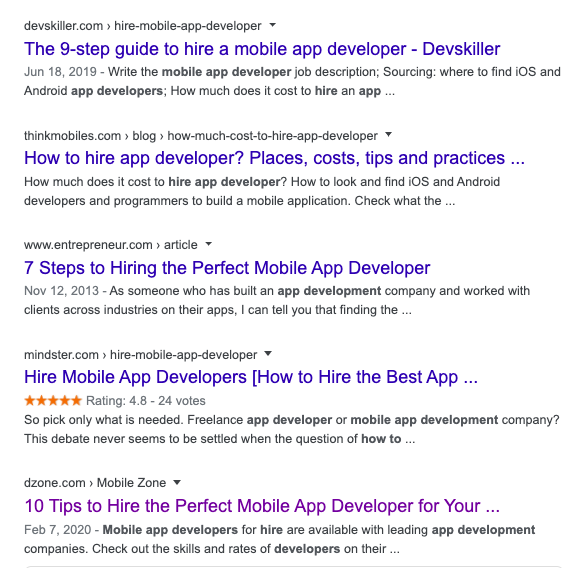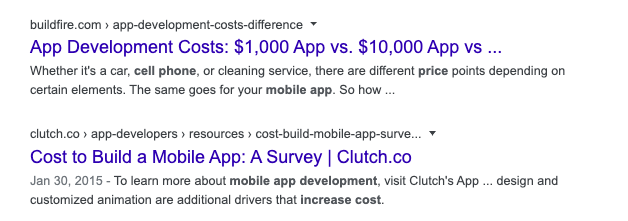So many businesses give up on content marketing and blogging just because it has not worked for them.
Yet so many are doing it because they’ve made mistakes that could’ve been easily avoided.
We’ve seen clients completely disillusioned by former content contractors, and each time we evaluate their sites and content strategy, we come across same old content marketing fails. Here’s a few.
First and foremost, you can never, never successfully market content that is not good.
Content that’s not informative or fun has low value.
It’s worthless.
You can work 24/7 promoting it for a short-term traffic spike, but it will never bring you long-term results.
So before you move on to the reasons your content marketing does not work:
make sure you have someone on your team that’s actually creative and loves the subject.
Before you tell me your niche is too serious – this can be done.
With that out of the way, let’s move to reasons your content marketing does not work.
Top content marketing mistakes

1. Your content marketing team lacks creativity.
Sure, they may be the gods of numbers and data analysis.
They may be AP testing everything under the sun, but if there is zero creativity they won’t be able to create good content.
Case in point: SEMrush has recently published a long list of content marketing stats data and along with other things they’ve taken desired skills from content marketing job listings. The skills include everything (seo, editing, analytics, research, etc.) – EXCEPT for creativity.
Companies that think creativity is irrelevant in content marketing professionals are the ones that later discover “content marketing does not work”. Some used to call it “content shock” – but we prefer to just call it producing dull content.
Most of our clients come to us for content strategy consulting after a highly technical but unimaginative marketing team has depleted their budgets with no results.
2. You have no idea who your real customers are.
Case in point:
We used to work with a company that offered a social trading platform. Their head of marketing came up with an amazing customer persona, – a middle-aged entrepreneur in a sports car who follows subscription-based business news feeds and wears luxury brands…
…once they opened their platform to the public, 87% of their audience were low-income high school graduates who wanted to get rich quick.
If your blog is directed at the wrong audience, your efforts will be vain.
Before you create a content plan and start filling it up with blog post topics, make sure you’ve put together a realistic customer persona. We’ve put together a guide on creating a buyer persona for small businesses, please check it out.
3. Your content plan is not flexible.
If you are following a content plan that’s been created 6 months ago to the T, you might be missing out on hot topics.
Things change in every industry, there are worthy developments your potential customers are interested in.
If you do not prioritize things that are important to your audience, your content marketing efforts will be vain.
Case in point
Most of the western countries are on COVID-19 related lockdown right now. Brands that have not released Coronavirus-related updates look weird, negligent, and careless. If they keep publishing their long-planned articles as if nothing is going on, their audience is getting turned off.
While most marketing blogs urge you to invest more time into planning, please remember to be spontaneous too.
We see that time and time again with out clients: a lot of great, link-baiting, lead generating content is created on the fly following industry events.
4. You only blog for SEO
If all you are doing is going down the list of long-tail keywords and turning them into blog post titles, you are on the road to nowhere.
Sure, this may accumulate your long-tail traffic and grow your visitor numbers in general.
However, will the visitors to your SEO content have a reason to subscribe to your list, follow you on Twitter, or fill out the contact form? There are no guarantees.
The solution is to, once again, prioritize your customer interests.
Sure, make sure your posts are optimized, but don’t just blog for the sake of covering your keywords.
Case in point:
these are all typical SEO content posts:

This is, in fact pure SEO – and having a landing page for every keyword is a great basic SEO principle.
But do not confuse it with content marketing.
Here’s what content marketing looks like in the same niche:

Sure, these posts are also optimized, and they are getting organic traffic.
However, first and foremost, the posts cater to the target audience.
Potential app development clients are definitely interested in the average cost of creating an app, not the vague “how to hire developers”.
Once you build that customer persona you will understand that they are interested in keeping their costs low – and they can figure out “how” to hire developers without a 400-word post on it.
Know the difference.
6. You do not track performance of your content
Marketing is all about making assumptions and testing them.
Determine the metrics you will be tracking – leads, ad clicks, click through to the “money” pages, e-mail submits, – anything that matters in your business model.
Evaluate every blog post against these metrics.
If the content you are publishing is not working – you need to step in and change course.
Normally it takes about 1 month maximum for a blog post to start ranking at full potential. If your blog posts do not perform after that time – you need to do something differently.
7. You do not promote your content enough
This is the rule of thumb: spend 20% of your time crafting your content and 80% promoting it.
If this sounds new or unusual: congratulations, your website can perform better.
These are just some of the ways you can promote your content:
- share it on social media
- share it on social media MORE – reply to old posts from other accounts, use a network of satellite accounts, hijack threads… your ethics are your limit here.
- e-mail every website you’ve mentioned in your blog post and let them know they got a shoutout (ask for a link in return if possible)
- send out an e-mail to your subscribers, cross-promote your post to someone else’s list
- e-mail sites that link to competing content to make sure they know you’ve written on the topic, ask for links
- send your new content to potential customers – your salespeople can even run campaigns using fresh blog posts (content marketing is NOT sales but they can cooperate!)
Need more ideas? Check our guide to blog post promotion.
8. You are not dedicated enough.
Content marketing effect resembles a snowball more than anything else.
The more you push it the more it grows.
We recommend creating content plans for at least 6 months with bi-monthly traffic and content strategy evaluations.
It takes time and consistent effort to build a blog that brings leads and grows your brand.
Most of the time will be spent publishing ineffective content at first, but the more data you gather, the more you evaluate the content performance, the more effective and focused your future posts will be.
Exactly for that reason we have been telling all our clients: start blogging ASAP.

I do not even know how I ended up here, but I thought this post was good.
I don’t know who you are but certainly you’re going to a famous blogger if you are not already 😉 Cheers!
Hello,
If you accept guest posts, how much would you charge? What kind of content would you accept?
Stephen
This is a great article. In this article, all the reasons are really true. Now I know why my content marketing is not working. Thanks for sharing this article.
Pingback: How often to audit content - 5 BIG signs your business blog needs an audit